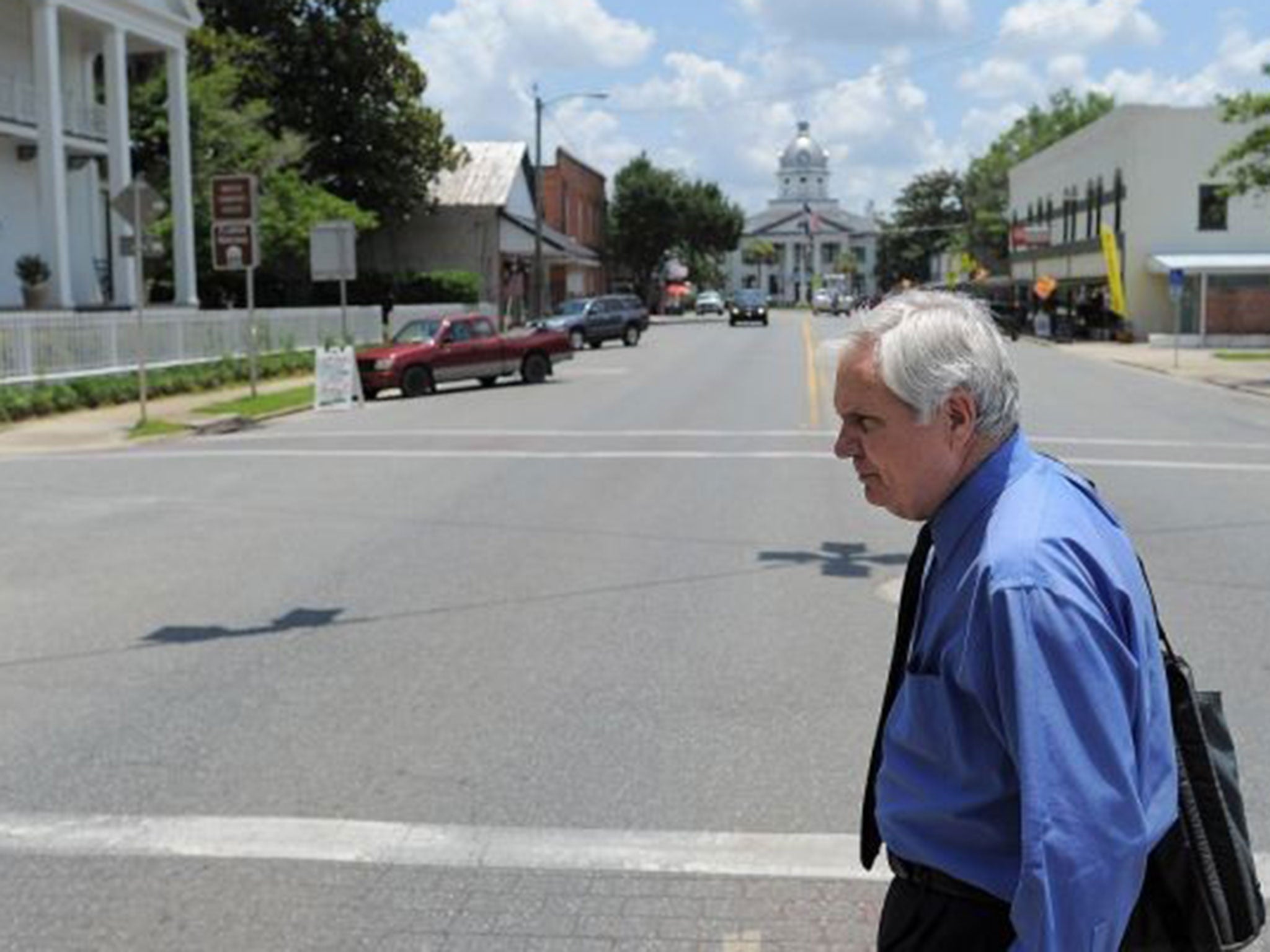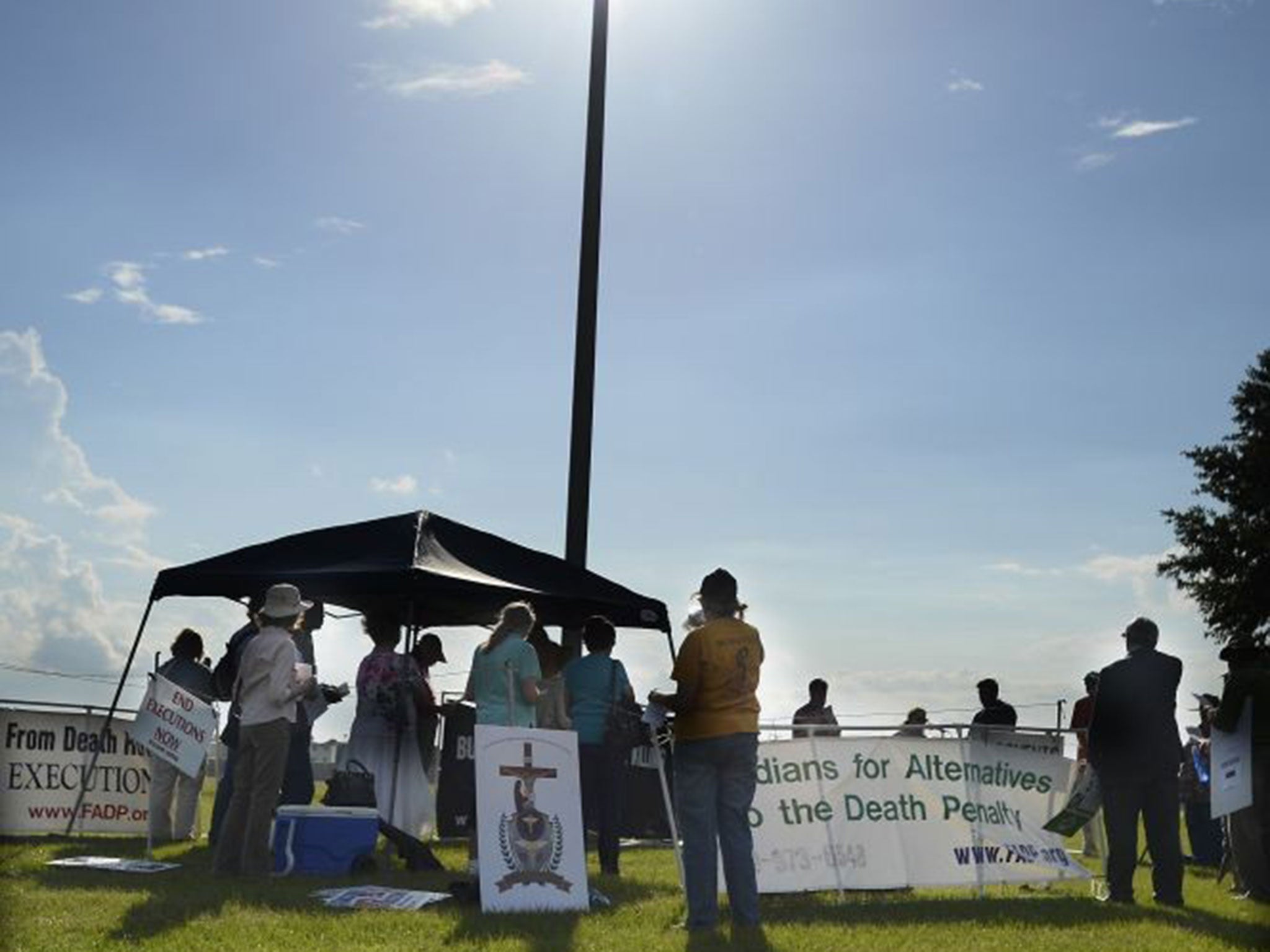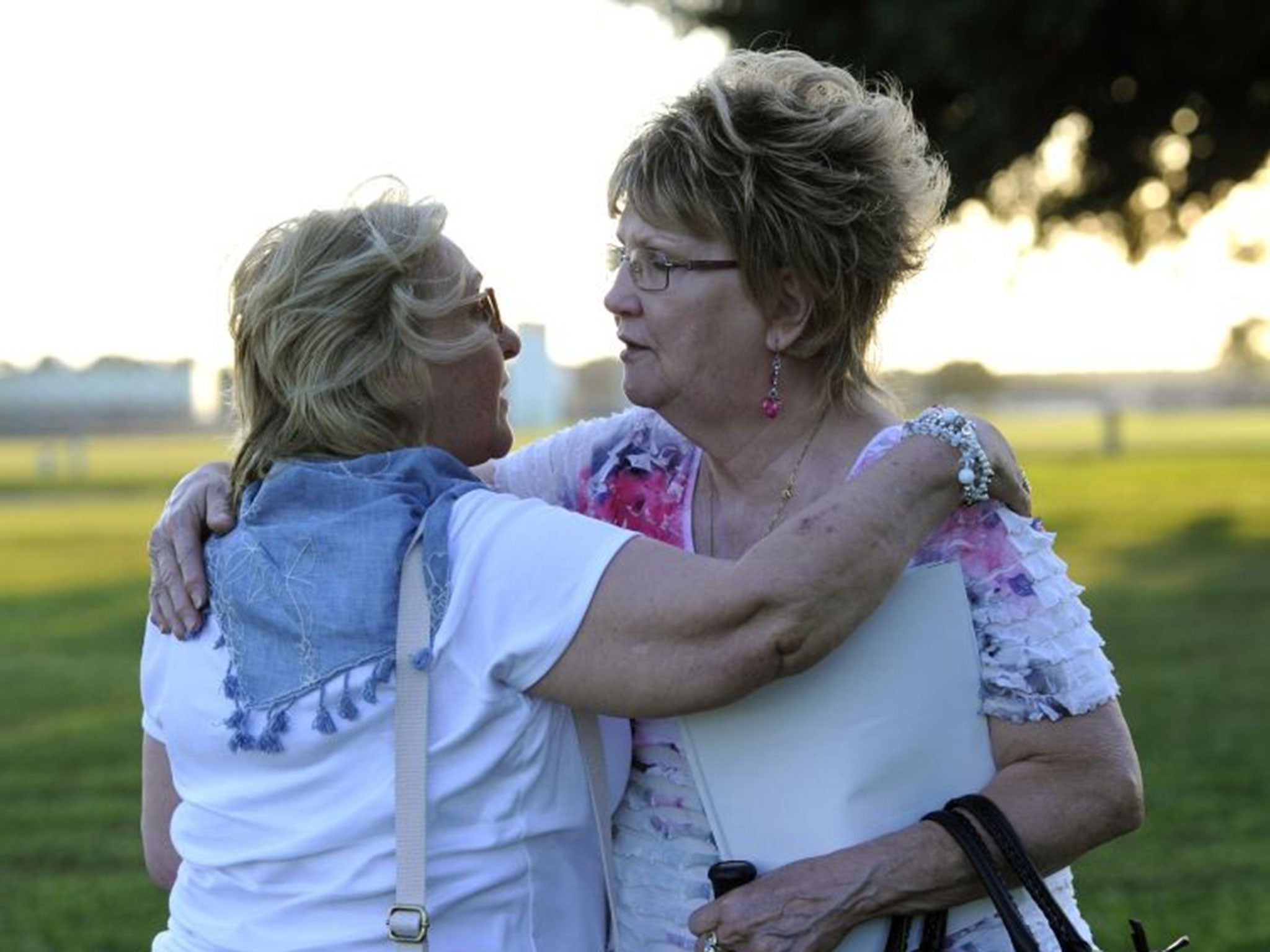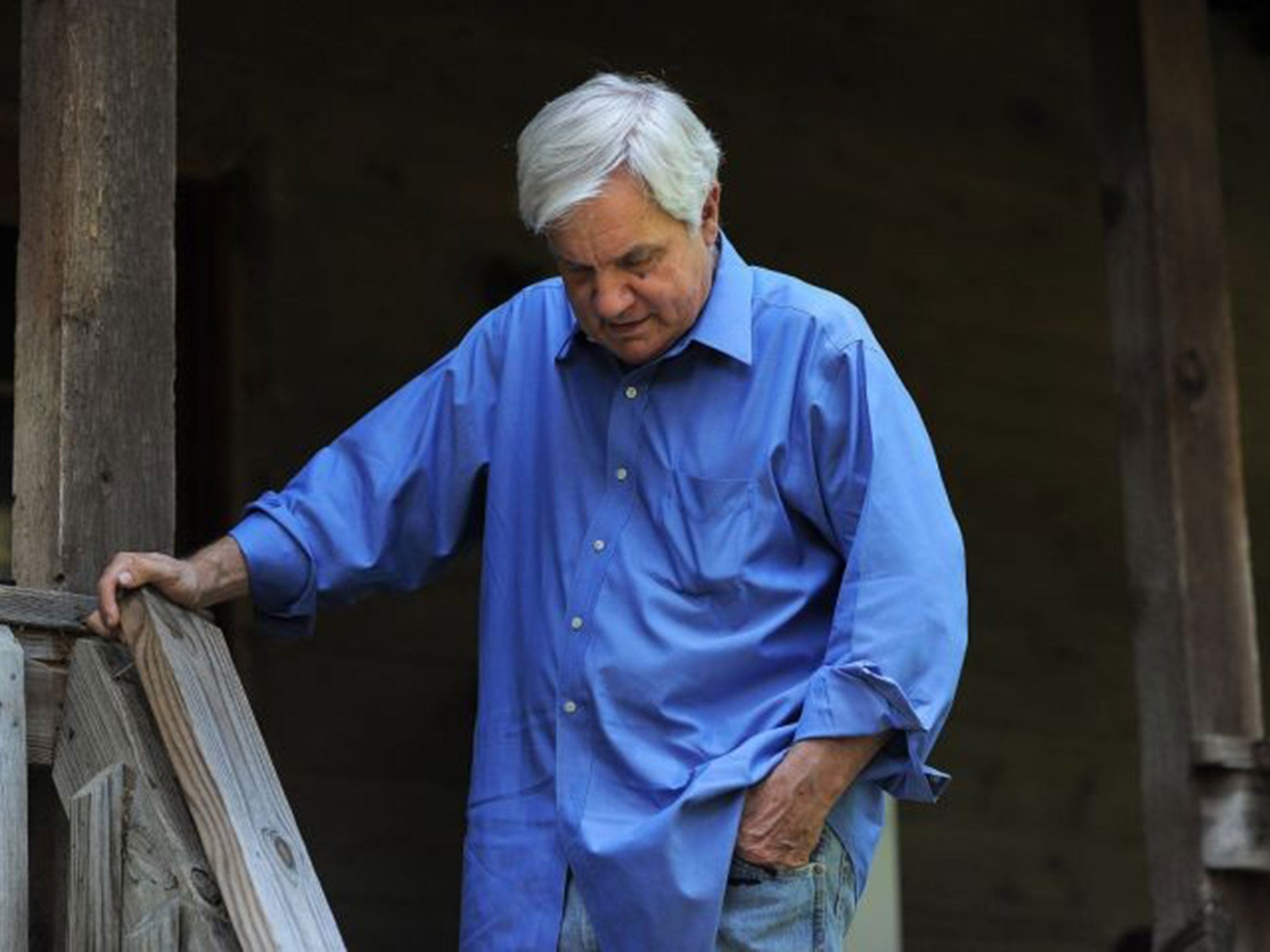'I took an oath to defend this guy': One lawyer's eleventh hour scramble to halt a convicted murderer's execution
Defence attorney Baya Harrison III went down to the wire to try to stop John Ruthnell Harrison becoming one of four men to be executed ina 24-hour period

Your support helps us to tell the story
From reproductive rights to climate change to Big Tech, The Independent is on the ground when the story is developing. Whether it's investigating the financials of Elon Musk's pro-Trump PAC or producing our latest documentary, 'The A Word', which shines a light on the American women fighting for reproductive rights, we know how important it is to parse out the facts from the messaging.
At such a critical moment in US history, we need reporters on the ground. Your donation allows us to keep sending journalists to speak to both sides of the story.
The Independent is trusted by Americans across the entire political spectrum. And unlike many other quality news outlets, we choose not to lock Americans out of our reporting and analysis with paywalls. We believe quality journalism should be available to everyone, paid for by those who can afford it.
Your support makes all the difference.The second-to-last appeal — a Hail Mary that the attorney allowed his timid hopes to cling to — had been denied 12 hours before in a call that came after his bedtime and left him uncharacteristically silent.
Baya Harrison III thanked the circuit court clerk, mourned for a few minutes, and then forced himself out of bed for his last attack: a filing with the US Supreme Court arguing that, in 18 hours, in the execution chamber of the Florida State Prison, John Ruthell Henry should not die.
“Look. Look. I’ve never done anything like this before.” Harrison clutched the phone receiver and paced his home office after spending most of the night writing. It was Wednesday morning now. On the other end of the line was his Supreme Court contact in Washington, an emergency applications clerk. “But dang it, it’s just possible that we might file — by 1 pm today — a writ in your court. Listen. Listen. It’s a real long shot, and I’m clearly late, but we have been up all night trying to pull something together. Believe me, Danny, I am not one of those frizzy-haired anti-death penalty types. Just put yourself in my place. I took an oath to defend this guy. It is my ethical obligation to go down to the wire. Okay? Okay.”
Seven weeks after the botched execution of an Oklahoma inmate, who twisted in pain and lived for 43 minutes after being injected with lethal drugs, four men in four states had been scheduled to die in one 24-hour period. One of the four, a rapist and murderer, had been executed the evening before in Georgia. In Missouri, a man who had committed a double homicide had been executed at midnight. In Pennsylvania, a man who killed a police officer had received a stay.
And here in Florida, the execution of murderer John Henry had come down to the final grind of the modern death penalty: a convicted killer who was sentenced to die, a state trying to carry out that sentence and a defence attorney trying to keep his client alive.
Harrison looked around for a clock. “Damn, what time is it?” he asked his wife, Barbara.
It was almost 11 am. The execution was scheduled for 6 pm, the dinner hour Baya and Barbara usually observed. He was tired. He was 72 and out of blood pressure medication. He’d been on this case for 14 years, assigned by a judge who knew he wouldn’t say no, but he hadn’t been lying to the Supreme Court clerk. He believed in the concept of the death penalty, thinking it a deterrent against future crimes, but he didn’t believe it should be easy. He didn’t believe it should happen unless all valid legal issues had been considered.
Until a few weeks ago, he thought that in Henry’s case, they had been. Henry was guilty. He’d confessed to killing his wife and her child. He had two separate trials, long before Harrison even met him. The paperwork from his motions and appeals after his convictions filled 15 crates. He had been on death row for 27 years and was now 63 years old.
Then, on May 27, the US Supreme Court released a decision pertaining to a different Florida death row case. The decision said that intellectual disability could no longer be determined by a strict IQ test — a score below 70 was previously required to prevent an execution — and that other environmental factors should also be considered. Henry’s IQ was 78.
Harrison filed a motion to the Florida Supreme Court, saying that in light of the US court’s recent decision, Henry should be examined again. It was denied. Harrison then appealed that ruling to the US Court of Appeals for the 11th Circuit, but was denied there as well.
That denial was the second-to-last attempt, the phone call he’d gotten the previous night. It was going to be the last thing he filed, but when he opened the 11th Circuit’s opinion, he was stunned to learn the decision hadn’t been unanimous. He had lost by a 2 to 1 vote. “One vote,” he told Barbara. “Dang, if it had gone the other way.”

So now his legal researcher in Gainesville was e-mailing in paragraphs for the writ of certiorari as fast as he could type them, and Barbara was proofreading them as fast as she could read them, and Harrison realised it was his scheduled time to make a call he knew was his duty but hadn’t been looking forward to.
“John? John, I need to bring you up to date on where we are.” On the other end of the line was John Henry, the convicted wife- and child-killer, the man he was trying to save, the man who every few years sent letters trying to fire Harrison, complaining that the lawyer wasn’t doing enough.
“This is the situation,” Harrison told Henry. “We took a real hit last night. However, we’ve got one thing left.” He explained the Supreme Court writ, and that it meant he would spend the afternoon working rather than making the two-hour drive to the penitentiary to witness the execution as planned. “Frankly, John, it is our last shot. It is our last hope. The odds are stacked against us, but we might make it. We might be able to stop this execution. You told me you didn’t need me holding your hand, you wanted me fighting in the courts, and that’s what I’m doing. I got to tell you, man, it’s a long shot. This may be the last time we talk.”
He hung up the phone and was quiet for a minute. Barbara, who had been using the fax machine a few feet away, looked at him. “Well, Baya?”
“He told me he appreciated the work I had done,” he said, mildly surprised. It was rare for Henry to express gratitude for his services. “And then he called me ‘Brian.’ ” His client had gotten his name wrong.
In Harrison’s office, a small, wood-paneled room on his farm just east of Tallahassee, the entire essence of Henry’s case had been culled to three fat manila folders.
In 1976, Henry stabbed his common-law wife to death in the front seat of the car while her children sat in the back. He went to prison, was released after seven years and married Suzanne Henry, who believed his first wife had been killed in a car accident. Shortly before Christmas in 1985, Henry went to Suzanne’s house — the couple had recently become estranged — to talk about a present for her five-year-old son, Eugene. They got in an argument, Henry took up a kitchen knife, and he stabbed her in the throat until she was dead. Then Henry took Eugene from the house, drove him around, bought fried chicken, bought crack cocaine, and used the same kitchen knife he’d brought from the house to kill the five-year-old boy.
This was the man Harrison was trying to save.
At 12:30, Harrison’s legal researcher in Gainesville phoned, saying that he thought the writ was ready to go. For the last chance on a 27-year-old case, Harrison asked Barbara to attach the files and press send.
And then he waited for a phone call from the Supreme Court clerk and, against his better judgment, hoped. In recent months, all around the country, there were teams of defence lawyers just like Harrison, protesting intellectual disability standards, protesting the use of certain lethal injection drugs, protesting compounding pharmacies that supplied drug cocktails, protesting the lethal injection method itself, which had been originally been introduced as a more humane alternative to the electric chair or the gas chamber. Now people were wondering whether it really was humane. Now the latest Gallup poll had national support for the death penalty at 60 per cent, compared with its 1994 high of 80 per cent. Now one state, Wyoming, was considering going back to executing people by firing squad.
Harrison’s phone rang.
“Oh, Jesus. Oh, God,” he said, as he searched for the receiver. “Yessir,” he said when he answered, but the call had nothing to do with John Henry. It was another case, a client who wondered why Harrison hadn’t been returning his calls for the past few days.
The phone rang again.
“Please, no,” he begged, as picked up the phone. It was his daughter, calling to tell him what time her flight got in for an upcoming visit, and also calling to wish him a happy birthday. The fact that his birthday was today kept slipping his mind.
“What time is it?” he wondered. It was a little after 4 pm. Two hours to go. He still hadn’t gotten a call back from the Supreme Court. In Missouri, he’d heard, the state had executed inmates while their attorneys were still waiting to hear back on appeals.
Maybe he wouldn’t hear back anything from the court, he realised. Maybe they would do it and he wouldn’t hear back anything at all.
His heart rate was too high, he could feel it, so he pulled on a pair of battered shoes and left for a walk outside in the hope it would calm him down. He walked around his 50-acre farm. Near the chicken coop and the two rescue horses and the leaf-ridden swimming pool with the rickety diving board, through fields that desperately needed mowing.
This would be his third execution in a 40-year-career. The first client, Danny Rolling, was a serial killer who, when asked for his final words on the gurney, began to sing a country song he’d written for the occasion. The second was Oba Chandler, who’d assaulted and drowned a family vacationing in Florida. They were bad, evil men. Harrison knew that. Was John Henry as bad? Harrison wondered. When he committed his crimes, he was a heavy drug addict who had now, through the circumstances of prison, been straight for 27 years. Would it be better to just leave him there, in the penitentiary, until his natural death?

When Harrison got home from his walk, he realized something: Because he thought he’d view the execution in person, he never made plans for how to follow it from home. He didn’t know how to learn when Henry died.
“What time is it?” he muttered. It was 5:40, and still nothing from the Supreme Court. The execution was scheduled to take place in 20 minutes.
According to official death row procedures, Henry would already be strapped to the gurney, in a little room with a phone line that went straight to the governor’s office. Harrison could picture it; he had been present for his other two clients’ executions. “I know John. He’s probably muttering, ‘This isn’t right, this isn’t right,’ ” Harrison said. He doubted Henry was resisting, but bet that he was talking to the guards.
“Fourteen years, and this is just the end. I hope I did everything. It’s easy to think, maybe I should have done this, or maybe I should have done that, but my God — when you kill three people and one of them was a young child — What time is it?”
He checked the clock again. It was 5:55.
Something he thought about sometimes: John Henry never spoke of remorse, at least not to him, for Suzanne’s and Eugene’s deaths.
It was 6:00.
In his office, he turned on the television, flipping between local news channels, hoping for a reporter standing outside the prison who would give updates on his client’s death.
“Do you want to eat?” Barbara asked. It was dinnertime, and since she wasn’t sure what else to do, she made chicken and spinach.
“I don’t know,” he said. “I don’t want to be disrespectful.”
“Did you try a Google search?” Barbara suggested. The television stations didn’t appear to be covering the execution yet, but the internet might have news already. She leaned over her husband’s shoulder while the attorney pecked out a question into an empty search box: “Was John Henry executed today?”
Nothing. Nothing.

It was nearly 7 pm when the phone rang. A representative from the Supreme Court. Harrison listened. Barbara stood next to him. He raised his right hand. He balled it into a fist. He stuck out his thumb. And he pointed it down. He shook his head. Denied, just moments ago. The execution would now proceed.
He didn’t quite know what to do. He guessed they should eat dinner. He guessed they should eat and wait, while watching The Colbert Report, but not laughing at many of the jokes.
The phone rang and Harrison reached for it.
“Is it over?” On the other end of the line was the attorney for the Department of Corrections. Harrison listened and nodded his head. “The time of death was 7:43? Okay. Thank you for calling.”
He hung up the phone and looked at Barbara, who had overheard the call.
“That’s it,” he said.
Join our commenting forum
Join thought-provoking conversations, follow other Independent readers and see their replies
Comments